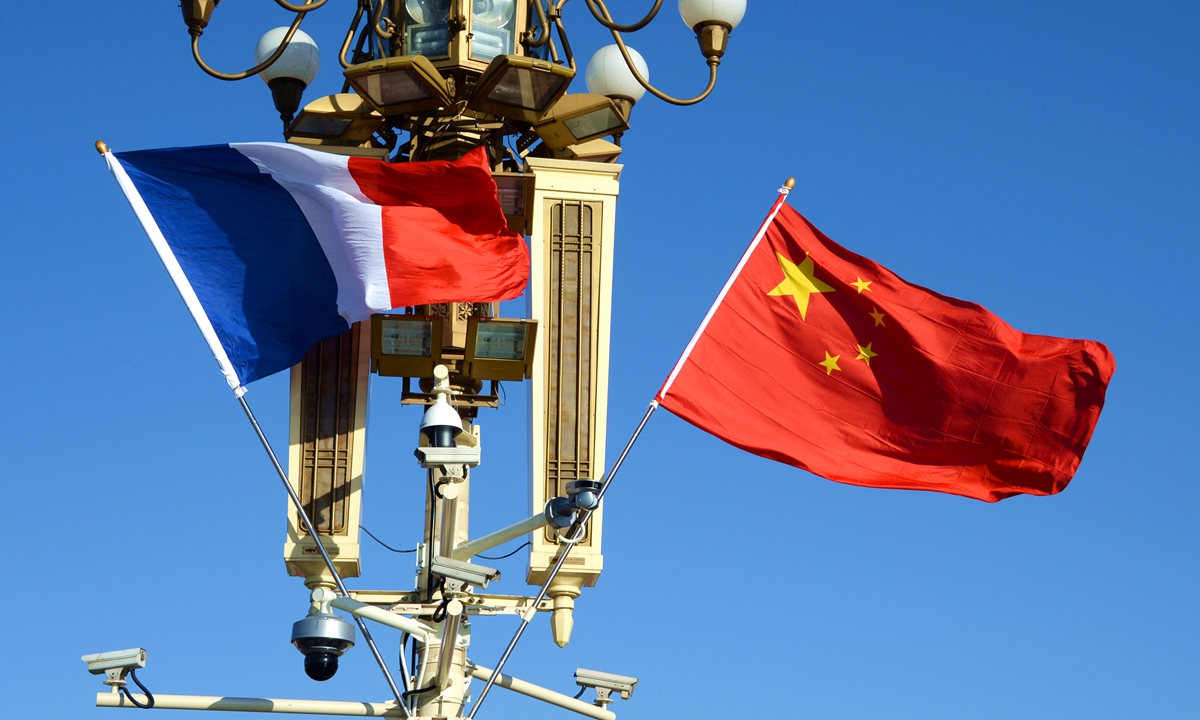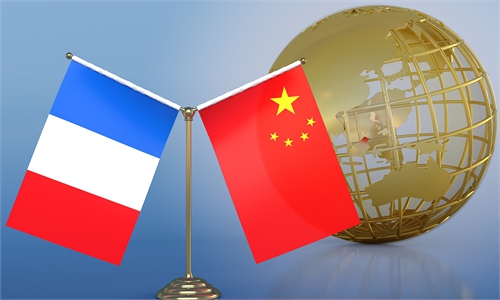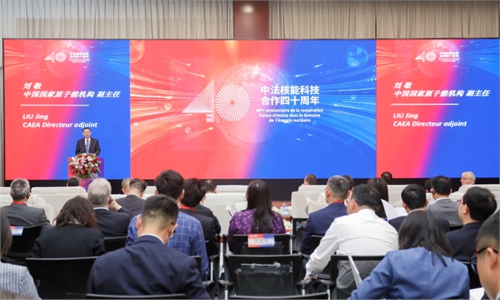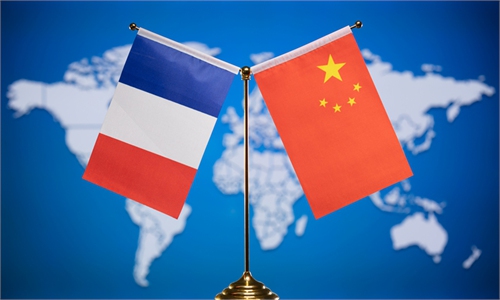Macron's visit signals enhanced China-France economic cooperation instead of 'decoupling'

China France File photo: cnsphoto
China and France are expected to eye further economic cooperation in fields such as aviation, nuclear power and new energy, and will inject more certainty into global economic recovery through enhancing the China-EU relationship, experts said amid the ongoing visit of French President Emmanuel Macron to China.Macron started his first visit to China since the outbreak of COVID-19 pandemic on Wednesday, with a commercial delegation composed of about 60 executives from the energy, transportation and aviation sectors. Ursula von der Leyen, president of the European Commission, is also visiting China.
Experts noted that instead of so-called decoupling, visits to China from European leaders including Macron send a message that maintaining and enhancing relations with China is a realistic need for the EU, and it wants to solidify business ties with the world's second-largest economy to reap the benefits of a more open and dynamic Chinese economy.
China has had diplomatic relations with France for 59 years, enjoying close trade cooperation during that period. According to the French Chamber of Commerce and Industry in China, about 2,100 French companies currently invest in the country, as its huge consumer power is a key force for them.
Those companies include Alstom, which is involved in the development of China's metro system and monorail, Airbus, an important partner of major Chinese airlines, Pierre Faber and L'Oréal, which are household names for Chinese consumers, and Decathlon and Pernod Ricard, which are important players in China's sports and wine industries.
"Macron's visit to China is definitely aimed at boosting France's economic growth through cooperation projects," Zhao Junjie, a research fellow at the Chinese Academy of Social Sciences' Institute of European Studies, told the Global Times on Wednesday.
Ahead of Macron's visit, Zheng Shanjie, head of China's National Development and Reform Commission, met with Airbus's CEO Guillaume Faury on Tuesday morning, noting that China is willing to maintain close communication with Airbus, strengthen mutually beneficial cooperation, and help the company continue to expand its business in China, in a bid to jointly promote the digital and low-carbon development of the aviation industry.
Zheng added that the cooperation between Airbus and China is a model of pragmatic cooperation between the two countries. Both sides should focus on the long term and work together to create and maintain a good environment and atmosphere for cooperation, he said.
Faury said that the company will expand bilateral cooperation and deepen communication and exchange, in order to serve the high-quality development of China's aviation industry.
According to a statement Airbus sent to the Global Times on Wednesday, at the end of February, Airbus' civil aircraft fleet in service in the Chinese mainland has reached 2,127, with a market share of approximately 54 percent.
In July last year, China's three major airlines pledged to buy a total of 292 Airbus jets in the biggest order by Chinese carriers since the start of the pandemic.
In addition to the aviation sector, cooperation in the peaceful use of nuclear energy is also an important part of the comprehensive strategic partnership between China and France, Zhao said.
March 29 marked the 40th anniversary of the nuclear energy cooperation between the two countries. Over the past 40 years, China and France have worked together to build landmark projects such as the Daya Bay, Ling'ao and Taishan nuclear power plants.
Liu Jing, deputy director of the China Atomic Energy Authority, said that both China and France consider nuclear energy as an important option for building a clean, low-carbon energy system and achieve their goals of carbon-peaking and carbon-neutrality.
French healthcare company Sanofi on Tuesday signed a partnership agreement with Pingshan district in South China's Shenzhen. The two parties will continue to accelerate the market access of innovative vaccines and promote the innovative development of the biopharmaceutical industry in the Guangdong-Hong Kong-Macao Greater Bay Area, according to a statement sent to the Global Times.
Experts noted that there is also a lot of room for bilateral cooperation in new areas such as new energy and electric vehicles.
For instance, Chinese electric car company BYD has expanded its sales layout to France, and domestic electric vehicle startup Leapmotor launched its T03 model in France in February.
"However, the EU and France are affected by the foreign policy of the US, which could undermine mutual trust and has brought great uncertainties and challenges to China-France and China-EU cooperation," Zhao noted.
The EU's position on China has deviated, and certain individual EU countries and institutions have taken wrong actions on the Taiwan question and Xinjiang-related issues, seriously damaging China's core interests, Chinese Ambassador to France Lu Shaye said earlier.
"However, we can still look forward to Macron's visit," said Zhao, noting that the visit will facilitate discussions whether France and China can further enhance their cooperation around the proposition of European strategic independence.



